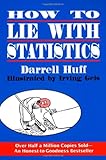
Due to a phone meeting, I spent the first 10 min snarfing down my lunch, so I missed the first presenters.
Jason Price: Libraries spend a lot of time trying to get accurate lists of the things we’re supposed to have access to. Publisher lists are marketing lists, and they don’t always include former titles. Do we even need these lists anymore? Should we be pushing harder to get them? Can we capture the loss from inaccurate access information and use that to make our case? Question: Isn’t it up to the link resolver vendors? No, they rely on the publishers/sources like we do. Question: Don’t you think something is wrong with the market when the publisher is so sure of sales that they don’t have to provide the information we want? Question: Haven’t we already done most of this work in OCLC, shouldn’t we use that?
Todd Carpenter: NISO recently launched the Open Discovery Initiative, which is trying to address the problems with indexed discovery services. How do you know what is being indexed in a discovery service? What do things like relevance ranking mean? What about the relationships between organizations that may impact ranking? The project is ongoing and expect to hear more in the fall (LITA, ALA Midwinter, and beyond).
Title change problem — uses xISSN service from OCLC to identify title changes through a Python script. If the data in OCLC isn’t good enough, and librarians are creating it, then how can we expect publishers to do better.
Dani Roach: Anyone seeing an unusual spike in use for 2011? Have you worked with them about it? Do you expect a resolution? They believe our users are doing group searches across the databases, even though we are sending them to specific databases, so they would need to actively choose to search more than one. Caution everyone to check their stats. And how is their explanation still COUNTER compliant.
Angel Black: Was given a mission at ER&L to find out what everyone is doing with OA journals, particularly those that come with traditional paid packages. They are manually adding links to MARC records, and use series fields (830) to keep track of them. But, not sure how to handle the OA stuff, particularly when you’re using a single record. Audience suggestion to use 856 subfield x. “Artesian, handcrafted serials cataloging”
Todd Carpenter part 2: How many of you think your patrons are having trouble finding the OA in a mixed access journal that is not exposed/labeled? KBs are at the journal or volume/issue level. About 1/3 of the room thinks it is a problem.
Has anyone developed their own local mobile app? Yes, there is a great way to do that, but more important to create a mobile-friendly website. PhoneGap will write an app for mobile OS that will wrap your web app in an app, and include some location services. Maybe look to include library in a university-wide app?
Adam Traub: Really into PPV/demand-driven. Some do an advance purchase model with tokens, and some of them will expire. Really wants to make it an unmediated process, but it opens up the library to increasing and spiraling costs. They went unmediated for a quarter, and the use skyrocketed. What’s a good way to do this without spending a ton of money? CCC’s Get It Now drives PPV usage through the link resolver. Another uses a note to indicate that the journal is being purchased by the library.
Kristin Martin: Temporarily had two discovery services, and they don’t know how to display this to users. Prime for some usability testing. Have results from both display side by side and let users “grade” them.
Michael Edwards: Part of a NE consortia, and thinks they should be able to come up with consortial pressure on vendors, and they’re basically telling them to take a leap. Are any of the smaller groups in pressuring vendors in making concessions to consortial acquisitions. Orbis-Cascade and Connect NY have both been doing good things for ebook pricing and reducing the multiplier for SU. Do some collection analysis on the joint borrowing/purchasing policies? The selectors will buy what they buy.

